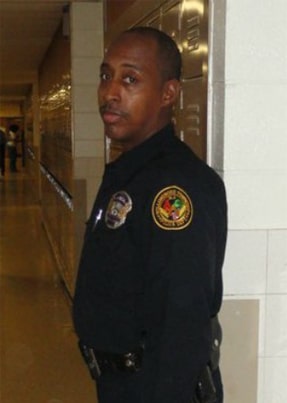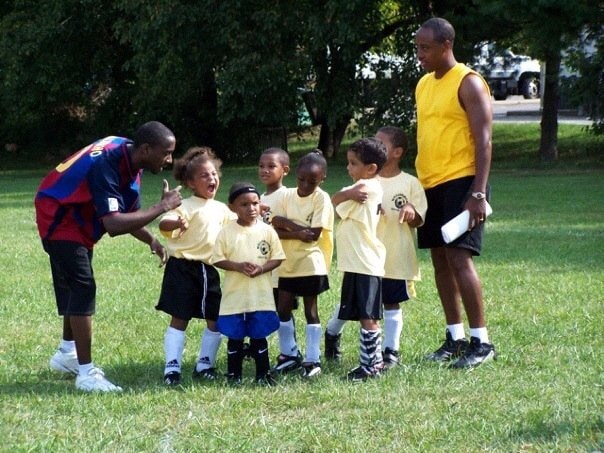by California Casualty | Safety |
Fall is a great time of year to get on a bicycle for a weekend ride or even to commute to work. The weather moderates in most parts of the country and it feels good to pedal a few miles. You’ll feel like a kid again as you cruise through neighborhoods and paths.
However, as a bicyclist, I find riding for fun or commuting to work is getting a lot more nerve-wracking.
One reason is that so many of us treat the morning drive more like a car race than a pleasant drive to work. Many of those drivers are distracted and some are out-right hostile towards a person on a bicycle. I’ve had my fair share of close calls that have forced me into potholes and curbs, had things thrown at me and verbal abuse from angry drivers. I’ve also seen way too many distracted drivers either texting, toying with some form of electronic device or putting on makeup which caused them to swerve into other people’s lanes or into the bike lane – oblivious of the danger they present.
Bicyclists are very vulnerable as they circumnavigate roads and byways. In 2015, 818 were killed on US roads, an increase of 12 percent from the previous year. Government statistics show that on average, 50,000 bicyclists are injured each year.
As more people choose to ride a bike for economic or health reasons, it struck me that a little education and courtesy could go a long way to prevent auto-bike confrontations, close calls and injuries.
For Drivers
- Try your best to give cyclists room. Many states now require a three foot safety zone when drivers passing a bicyclist.
- It’s a good idea to slow down when you pass a cyclist (or pedestrian). Try to imagine that person is your grandmother in a wheelchair; you wouldn’t blow by throwing dust and debris at your grandmother, would you?
- Don’t honk your horn, please. Yes, we know we might be impeding you for a short distance, but honking the horn can be startling and cause a cyclist to veer into traffic or fall off their bikes. Keep in mind that most localities and states require bicyclists to ride in the street rather than the sidewalk.
- Put down the phone and other devices and concentrate on driving.
- Be aware of bicyclists. I know we can be hard to see, but how would you feel if you hit and injured one of us.
- Look before you open your vehicle’s door. I can’t count the number of times I’ve been grazed by a door or had to veer wildly around one as I cycled past a vehicle. Many bicyclists have been killed or injured by either colliding with an open door or by being pushed into traffic.
- Be extra careful when making turns or pulling out of parking lots. Cyclists may be moving faster than you think and can sometimes be hard to see.
For Bicyclists
- Always wear a helmet.
- Observe all traffic laws: never run a stop sign or red light, always ride on the right and never against traffic, and know bicycle turn signals.
- Always wear bright or reflective clothing and use lights when riding at dusk or dark.
- Don’t unnecessarily impede traffic or ride double or triple unless there is room.
- Try to avoid narrow streets, roads and high-speed expressways. Side streets and bike paths are much safer and much more pleasant to ride.
- Don’t engage or provoke an aggressive driver, instead, try to get a picture of video of the encounter and report it to authorities.
While the pleasant weather continues, I hope you get the chance to hop on your bike and take a ride, or even use it to commute to work. It will certainly help you understand how vulnerable being a bicyclist is, and maybe you’ll look at that two wheeled commuter in a different light.
by California Casualty | Health |
If you have a dog or cat, you know what a joy they are. Their love and loyalty enriches our lives.
Now, many experts say there is proof that life with a pet may actually provide these health benefits:
- Reduced allergies – more and more studies suggest that infants and children that grow up in a house with furred animals have a reduced risk of allergies and asthma later in life
- Lower blood pressure – numerous studies find merely being around a pet can lower your blood pressure, with the greatest pressure drop coming when you pet them
- Better heart health – dog owners have a lower risk of heart disease and those suffering from heart disease had better recoveries and survived longer if they had a pet
- Increased companionship – pet owners are less likely to suffer from depression, Alzheimer patients were calmer when pets were present, and many elderly people reported a better quality of life because of their pets
- Decreased weight – those of us with pets tend to go to dog parks, take regular walks, hikes or runs with their dog, and were less likely to be overweight
Many families also have therapy and companion dogs to warn about food ingredients someone may be allergic to, while others can warn diabetes patients when they are suffering from low blood sugar.
And, knowing that your dog loves to take trips with you to dog parks, hiking trails and other dog-friendly areas, California Casualty now includes coverage with every auto policy* that pays for vet bills if Fido or Rover gets hurt in a covered auto accident.
However, these pet passenger safety tips can help you avoid the heartache of an injured loved one:
- Keep them in the backseat away from airbags
- Put them in a crash tested dog crate or safety harness
- Lock power windows to prevent them from accidently from opening up or closing on them
- Always have water on hand
- Take breaks every two or three hours to let them stretch and take care of potty business
- Never leave them unattended in the vehicle, especially on warm or hot days
by California Casualty | Nominate a Hero |
 Name: Walter H.
Name: Walter H.
Occupation: Peace Officer
Years of Service: 25
State: NJ
What made you want to be a Peace Officer? “What I love most about being a Police Officer working and interacting with children was the relationships that I built with those students and the feeling that I could possibly make a difference in their lives.”
What do you like most about your job? “The reason I wanted to be a Police Officer was to help people and along with that came the opportunity to work with the youth, so it wasn’t the typical police career spent enforcing the law and making arrests or writing tickets. It was rewarding in a sense that I got a chance to build relationships in the community and build trust with the community that I served.”
Walter has gone above and beyond the call of duty for his community. He has started a youth academy, coached youth in sports. He takes time away from his own family to help feed families for Thanksgiving and Christmas.
Even though he has retired, he went back to his community to work as security in the public schools to help the relationships with the students. Even after the students have grown, Walter has left a positive impact on many people of his local community.

by California Casualty | Educators |
Eduardo Niebla’s passion for teaching high school science is getting a boost with a $2,500 Academic Award from California Casualty. Eduardo was shocked when he was announced as the winner during a recent staff meeting.
“It was such a surprise because I have never won anything before,” he said. “I thought I was in trouble when they called my name.”
The anxiety turned out to be a blessing for Mr. Niebla, who will be able to purchase much needed equipment for his chemistry and forensic science classes; technology that will enhance the high-level learning he provides for the students at Calexico High School in Calexico, California.
“Budgets are always tight,” Mr. Niebla said, “This will help ensure that our students have the supplies and materials they need to succeed.”
The Academic Award was created to ease the economic impact felt by educators who often spend their own money to outfit their classrooms with essential supplies and materials. This is the 11th Academic Award from California Casualty since the program began in 2012.
“ This award is a reflection of the proud 65 year relationship we have with educators,” said Sr. VP Mike McCormick. “We are committed to serving them and helping them make a difference for children.”
This award is a reflection of the proud 65 year relationship we have with educators,” said Sr. VP Mike McCormick. “We are committed to serving them and helping them make a difference for children.”
“I am very glad to have the support of a company like California Casualty who believes in investing in education and the future. I see the results when students get into universities and colleges, and when they come back to show me their diplomas and tell me they decided to go into the science field because of what they learned here,’” he said. Mr. Niebla is proud that Calexico High School has such a high level of students who are accepted into University of California and California State University colleges.
Mr. Niebla said that he developed his love of learning from his parents, who were both chemists. After working as a chemist himself, he decided he wanted to teach others instead. He has taught for 18 years, the past 12 at Calexico High School. He and his wife have a daughter who works as a graphic designer and a son who is a sophomore at Calexico High School.
Entries for the next California Casualty $2,500 Academic Award are now being taken at www.calcasacademicaward.com. The entry deadline is December 4, 2016, with a winner announced after the New Year.
by California Casualty | Educators |
Let’s face it; noise is part of the classroom. Whether it’s kids working on a project or coming in from recess, excited students can sometimes raise a ruckus. If you’ve tried the three fingers “stop, look and listen” trick and are at your wits end trying to quell the noise, thanks to Edutopia here are some other techniques you can employ to hush the bedlam and return to a learning environment. We’ve broken them down by age groups.
Kindergarten and early elementary
- Flick the light switch
- Capture attention with a wind chime or rain stick
- Pop pretend marshmallows into the mouth until they are full
- Fill a spray bottle with water infused with essential oils and call it a “quiet spray”
- Blow magical “hush-bubbles”
Late elementary and middle school
- Employ the “silent 20” – each time students return to seats and are quiet within 20 seconds following an activity, a token is advanced on a game board. When the final square is reached (in about a month) the class gets a popcorn party
- Engage students at the door before they enter the classroom to reinforce that learning is about to begin
- Utilize minimally invasive hand gestures and other non-confrontational techniques as shown in the Teach Like a Champion video
- Incorporate a content “word of the week” (such as integer, Freud, renaissance) to signal that it is time for silence
High school students
- Write a note that reads: “If you wish to continue talking during my lesson, I will have to take time from you at the break. By the time I’ve written the title on the board you need to be sitting in silence; anyone still talking will be kept behind for five minutes.”
- Play soothing classical music on low volume when students enter to create a professional tone.
Some instructors find that call and response sayings are useful, such as:
- Holy…..macaroni
- 1,2,3, eyes on me…..1,2, eyes on you
- I’m incredible…..like the Hulk (everyone gives a grrrrr and flexes their muscles)
- Ayyyy…..macarena
- I get knocked down…..but I get up again
For those who like high tech options, there are:
- “Too Noisy,” an app that shows a colorful graph with a digital noise meter to alert you and your students when the class has exceeded acceptable noise levels
- Traffic Light, that allows you to show when the levels are too loud and the remedy
- ClassDojo, which rewards students for successes and keeps parents apprised on how their students are doing
We know we’ve barely scratched the surface of great classroom/teacher ideas and we’d love to hear about some that you use.
Here are two more resources from California Casualty that can help educators:
- Let us help make setting up your classroom a little easier on your wallet with a $2,500 Academic Award at www.calcasacademicaward.com.
- Apply for a $200 Help Your Classroom grant at www.calcas.com/help-your-classroom.

 Name: Walter H.
Name: Walter H.
 This award is a reflection of the proud 65 year relationship we have with educators,” said Sr. VP Mike McCormick. “We are committed to serving them and helping them make a difference for children.”
This award is a reflection of the proud 65 year relationship we have with educators,” said Sr. VP Mike McCormick. “We are committed to serving them and helping them make a difference for children.”